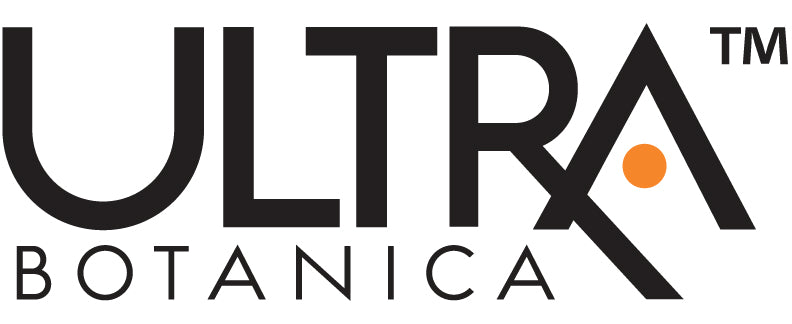Curious about Dry January? You’ve likely seen the online buzz or heard friends share their experiences. This public health initiative offers a chance to reassess your relationship with alcohol and unlock surprising health benefits.
And given that scientists no longer consider any amount of alcohol to be helpful for health, why not start your new health adventure with a Dry January?

The History of Alcohol Change UK and Growth of Dry January
Alcohol Change UK launched Dry January in 2012 as a public health initiative. This UK movement has gone global. It’s not about quitting alcohol entirely; it’s about a month long break for cutting alcohol and self-reflection.
Reap the Many Rewards of Dry January
Taking a break from alcohol during Dry January can lead to a host of physical, mental, and financial benefits. UC Davis health reports better sleep, more energy, weight loss, and a healthier heart. Even just one month without alcohol can bring noticeable changes.
Better Sleep
A key benefit of less alcohol consumption is better sleep. Alcohol disrupts sleep patterns and especially REM sleep, which is a hugely important part of your sleep according to the National Sleep Foundation.
Overall, your sleep affects how much you weigh and impacts cancer-related proteins. Reducing or removing alcohol helps your body find its natural sleep rhythm, boosting energy.
Weight Loss
A light beer has anywhere from 90 to 150 calories. A glass of red wine might kick it to over 150.
With those kinds of numbers, some of us could be notching 600+ calories on a night out – and that doesn’t even count the late-night pizza or fast food that sometimes accompanies it.
Remove those excess calories over the course of a month, and it becomes easy to see why so many people report they lost weight when they gave Dry January a try.
What’s more, this success can breed even more success, because you see your efforts as fruitful, instead of always blowing up in smoke.

More Energy
The combination of better sleep and reduced caloric intake often results in more energy, especially after the first few days of adjustment. And just imagine how productive your days will now feel, with all that great sleep and extra energy!
A Healthier Heart
Excessive alcohol intake strains the heart by causing high blood pressure, weakening the heart muscle (cardiomyopathy), and increasing levels of harmful fats in the blood, such as triglycerides.
Dry January allows your heart some recovery time. Reducing alcohol consumption can greatly improve heart health by lowering blood pressure, reducing the risk of arrhythmias, and decreasing the likelihood of developing heart disease.
By cutting back, you allow your heart to pump more efficiently and reduce stress on its walls. Minimizing alcohol also promotes better hydration, improves sleep quality, and lowers systemic inflammation, all of which contribute to a healthier cardiovascular system.
Taking steps to limit alcohol intake is a simple yet powerful way to strengthen your heart and overall well-being.
Liver Detox
Although alcohol consumption can damage many organs in the body, including the GI tract, pancreas, heart, and bones, the liver is especially vulnerable to organ damage from alcohol abuse.
This is because the liver is largely responsible for metabolizing the acetyldehyde from alcohol. That said, the liver has incredible regenerating qualities, and after cessation of alcohol consumption, it can often recover a significant amount of its mass, so long as you don’t wait till the point of no return.
Once the liver becomes fatty — which can happen in as little as 2 weeks — it becomes increasingly vulnerable to inflammation and scarring.
Even if you only go dry for one month, you give your liver a little bit of breathing room, and a chance to quell some of the inflammation.

Clearer Complexion
Yes, alcohol is a liquid, but that doesn’t mean it’s a hydrating liquid! Alcohol is actually dehydrating, which is negative for how your skin looks. And if you’re drinking alcohol instead of pure water, that’s an additional negative for your skin.
Stronger Immune System
Clinicians have long noted a link between excessive alcohol consumption and adverse immune-related health effects such as susceptibility to pneumonia.
The National Institutes of Health report this immune system havoc has been expanded to include a greater likelihood of acute respiratory stress syndromes, sepsis, alcoholic liver disease (ALD), and certain cancers.
And in addition, a higher risk of postoperative complications, slower and less complete recovery from infection or physical trauma, including poor wound healing.
Alcohol consumption also destroys T cells and other immune cells in the gut microbiota. The month-long “Dry January” can therefore offer substantial opportunity for improved health outcomes.
Keeps Money in Your Wallet
Participating in Dry January can lead to surprising financial savings by cutting the often-overlooked expenses associated with drinking.
A single drink at a bar or restaurant can cost $10 to $15, while at-home consumption still adds up with the price of bottles of wine, spirits, or beer. It’s certainly much more expensive than water, even if you spring for sparkling water.
If you typically drink three times a week and spend $30 per outing, abstaining for the month could save you $120+. If you’re a heavier drinker or enjoy premium brands, the savings can climb to $200-$300 or beyond.
What’s more, a Dry January often leads to lower spending on late-night snacks, ride shares, and other purchases tied to drinking, further boosting your money saved while improving your health.

Warning: Don’t Quit Cold Turkey If You’re a Heavy Drinker!
For heavy drinkers, quitting alcohol cold turkey can pose serious health risks due to its potentially severe withdrawal symptoms. If you drink heavily over time, your body becomes physically dependent on alcohol.
Abruptly stopping can cause withdrawal symptoms that range from mild to life-threatening, including:
- Mild Symptoms: Anxiety, insomnia, nausea, and tremors.
- Moderate Symptoms: Increased heart rate, sweating, irritability, and confusion.
- Severe Symptoms (Delirium Tremens – DTs): Seizures, hallucinations, severe agitation, high fever, and disorientation. DTs can be fatal if not treated promptly.
Fortunately, you have options on a road to sobriety — which all include professional guidance, as opposed to quitting alone.
Those options include medically supervised detox programs, inpatient rehabilitation, outpatient rehabilitation, and support groups which can also help you learn how to navigate social situations without alcohol.
Tips for a Successful Dry January
These tips from Harvard Health Publishing can help people through January successfully when taking a break from booze, which some call the “Dry January Challenge.” It might be better termed as a “January Experiment.”
Recognize that you may experience two types of pressure to consume:
- Direct pressure, having to answer with “No, thanks.” directly to someone.
- Indirect pressure, feeling pressure to drink when you’re around others who are drinking.
The Buddy System
Partner with a friend for mutual motivation. Support is vital during challenges. Sharing the journey makes a significant difference. And it’s even better if you can attend events together for moral support.
Avoiding Tempting Situations & Triggers
Skip happy hour or gatherings with alcohol. It’s best to avoid temptation until your resolve strengthens.
Afterwards, explore healthy year-round moderation, beyond Dry January. Use this time to set personal goals related to drinking and even find a support group. Maybe you’ll love the results so much that you enact a long-term hiatus on alcohol consumption!

Find a Substitute Drink
Find a new go-to beverage of choice. Look beyond sugary sodas. Try non-alcoholic spirits, beers, sparkling water, and mocktails for refreshing alternatives. Some grocery stores now sell prepared mocktails. Or try sparkling apple juice or grape juice, combined with sparkling water to cut the sugar consumption. Alternatively, you could drink a bit of pure 100% juice added to sparkling water for flavor with reduced sugars.
These options can add variety and fun, and they may also travel well if they’re canned or bottled (except for taking them through airport security).
Script and Practice Your “No”
It helps if you anticipate exact situations and questions, write them out, and then practice giving your answer to each.
Bear in mind that you might need a second “escalated” response if someone insists after you’ve already said no. Practice can make a world of difference.
People practice for all kinds of uncomfortable situations — quoting a high dollar amount for work, making sales presentations, and more. So, scripting and practicing your “no” is just another scenario. Get in front of a mirror and practice your “no.”
Dry January: Your First Step
Dry January initiates healthier habits. Reflect on what works. If beneficial, establish drinking limits with resources like Rethinking Drinking.
The “Try Dry” app offers motivational support and tools for navigating social situations without alcohol.
Conclusion
Dry January is more than a resolution; it’s a journey of self-discovery. It’s a chance to reset, build healthier routines, and experience distinct physical benefits. Explore the health benefits and find out if an alcohol break could be life-changing for you.

Frequently Asked Questions
What is dry January?
Dry January is a public health initiative encouraging people to abstain from alcohol for the month of January. It provides an opportunity to reflect on drinking habits, reset health goals, and explore the benefits of a month-long alcohol-free lifestyle.
How can dry January help my health?
Participating in Dry January can lead to numerous health benefits, including better sleep, weight loss, increased energy, improved heart health, a detoxified liver, clearer skin, a stronger immune system, and financial savings.
What should I know before I try a dry January?
If you are a heavy drinker, quitting alcohol suddenly can be dangerous due to withdrawal symptoms. Seek professional guidance before starting.
For others, Dry January offers a chance to reassess alcohol consumption, but preparation and planning your responscan make the experience more successful and rewarding.





Share:
Achieve New Year's Goals: Strategies for Health and Balance
Winter Skin Care Tips: Protect and Nourish Dry Skin